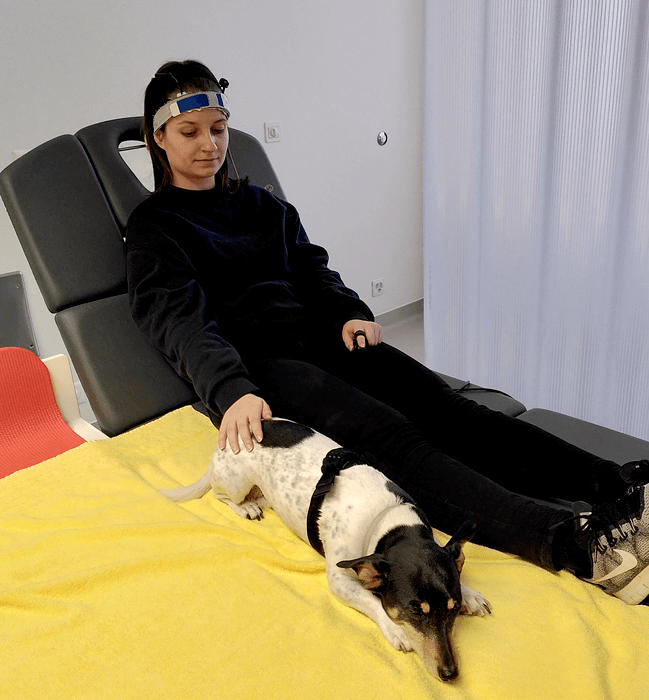BASEL, Switzerland — Petting dogs may make even the grumpiest person more sociable, according to new research. Researchers in Switzerland say seeing, feeling, and touching a dog boosts neurons in the pre-frontal cortex — the area of the brain that helps regulate emotional interactions.
The findings have implications for animal-assisted clinical therapy. Dogs often help people cope with stress and depression, so shedding light on the phenomenon could lead to the development of better treatments.
The study, published in the journal PLoS ONE, found the effect persists after the dogs are no longer present, but drops off when researchers replaced live dogs with stuffed animals.
“The present study demonstrates that prefrontal brain activity in healthy subjects increased with a rise in interactional closeness with a dog or a plush animal, but especially in contact with the dog the activation is stronger. This indicates that interactions with a dog might activate more attentional processes and elicit stronger emotional arousal than comparable nonliving stimuli,” study authors write in a media release.

Spending more time with pets has a cumulative benefit
In the study, researchers measured activity in the prefrontal cortex of the brain among 19 men and women non-invasively using neuroimaging technology. The participants wore a skull cap with sensors that emitted infrared light into their brain as they viewed a dog, reclined in a chair with the animal against their legs, or petted them.
The participants also performed each condition with “Leo,” a stuffed lion. Researchers filled its fur with a water bottle to match the temperature and weight of the live dogs. Results showed that prefrontal brain activity was greater when participants interacted with the real canines.
The team notes that this difference was largest for petting, which was the most interactive condition. Another key finding was prefrontal brain activity increased each time people interacted with a real dog.
This was not the case with successive interactions with the stuffed lion, indicating the response might be related to familiarity or social bonding. Study leader Rahel Marti adds that the results suggest a relationship with the dog might be a crucial factor.
Marti says the findings are clinically relevant for patients with deficits in motivation, attention, and socio-emotional functioning. Adding animals to therapeutic interventions might be a promising approach for improving emotional involvement and attention.
Prior research has shown that pets have been a huge benefit to the public’s mental health during the pandemic. A York University survey of almost 6,000 people found nearly 90 percent of pet owners believe their animals helped them cope better emotionally during lockdown.
South West News Service writer Mark Waghorn contributed to this report.

